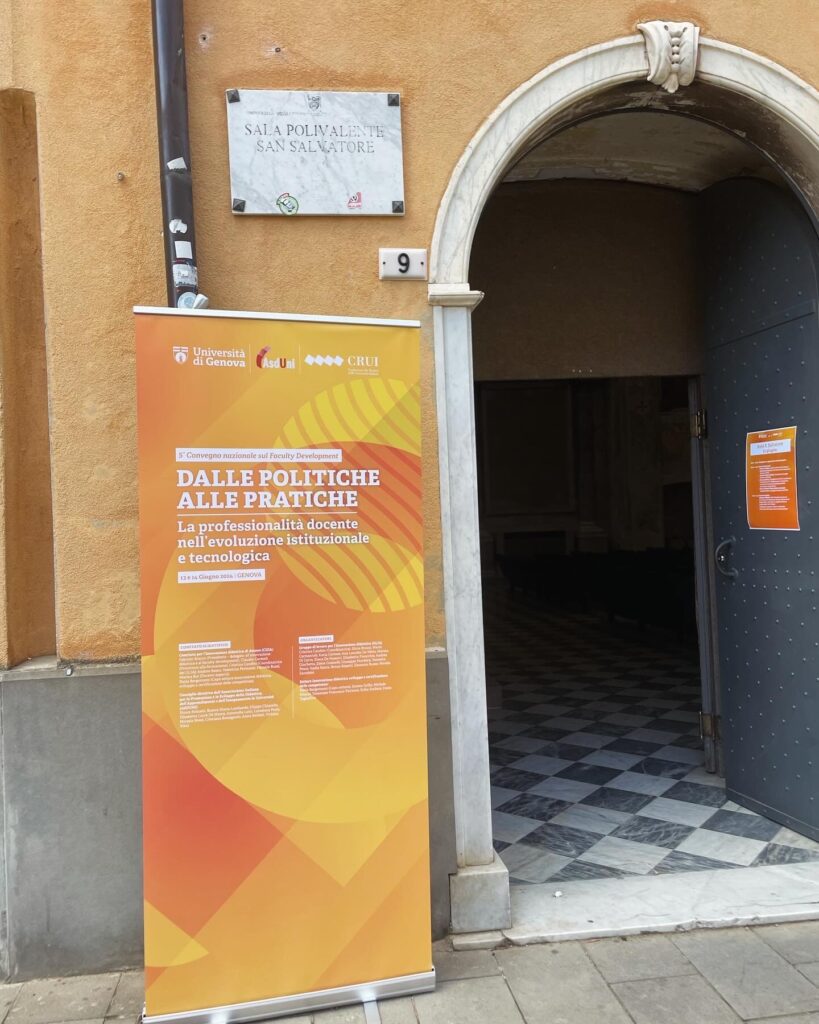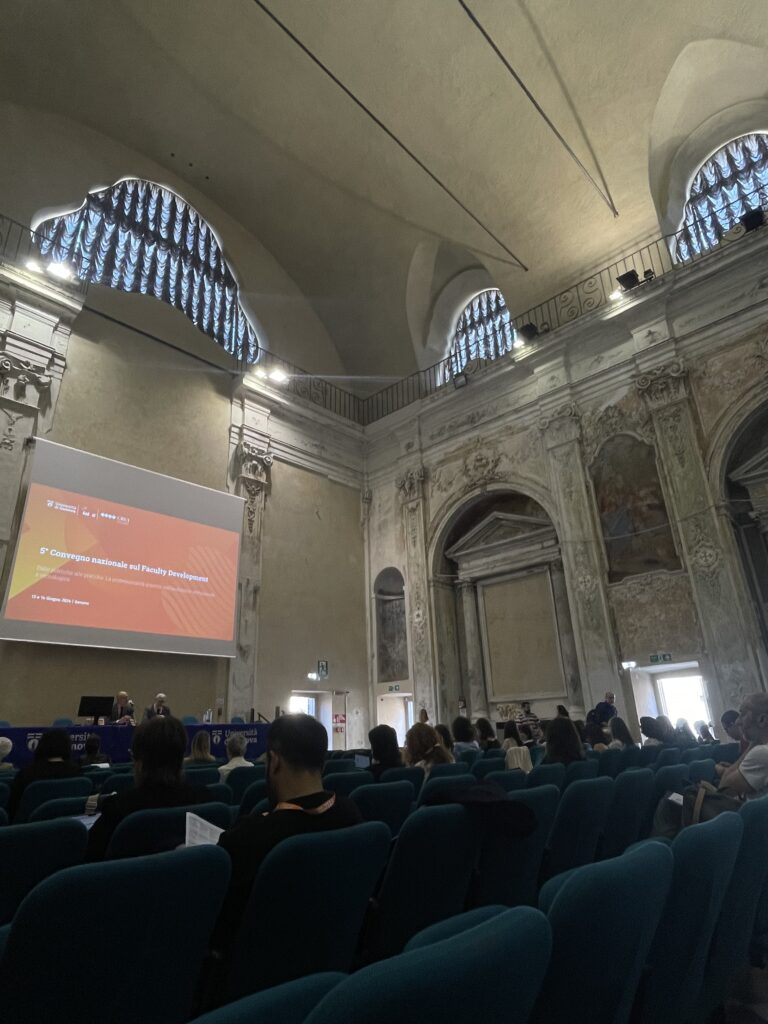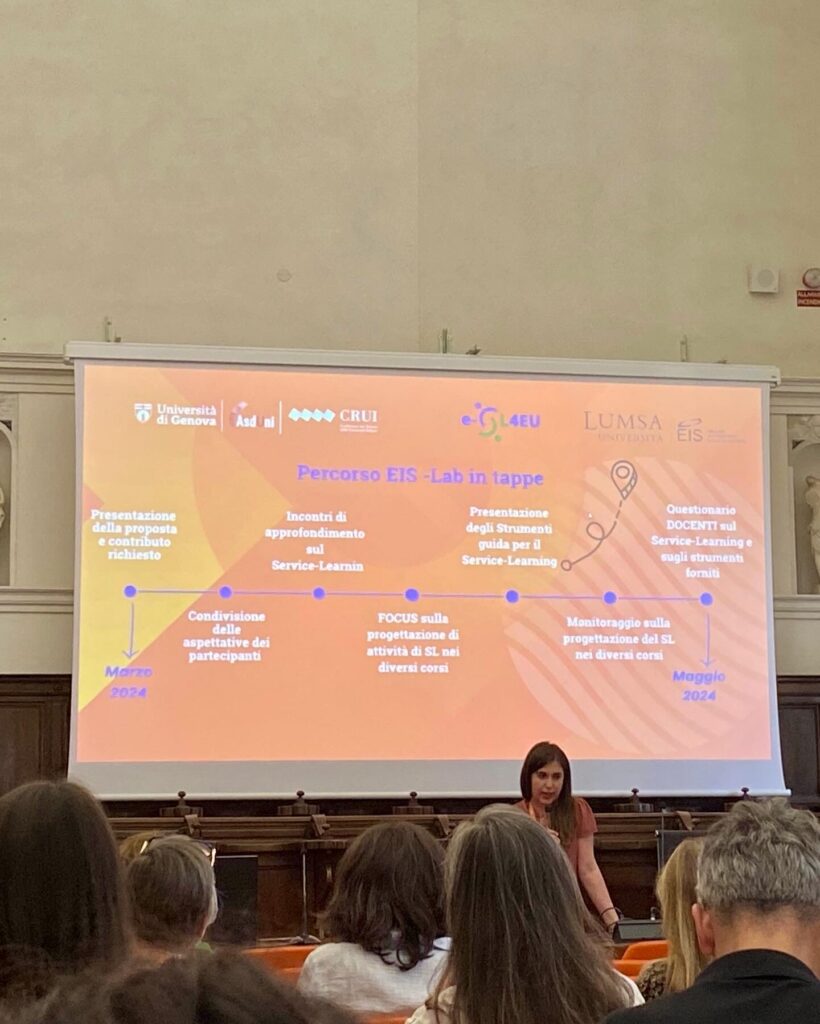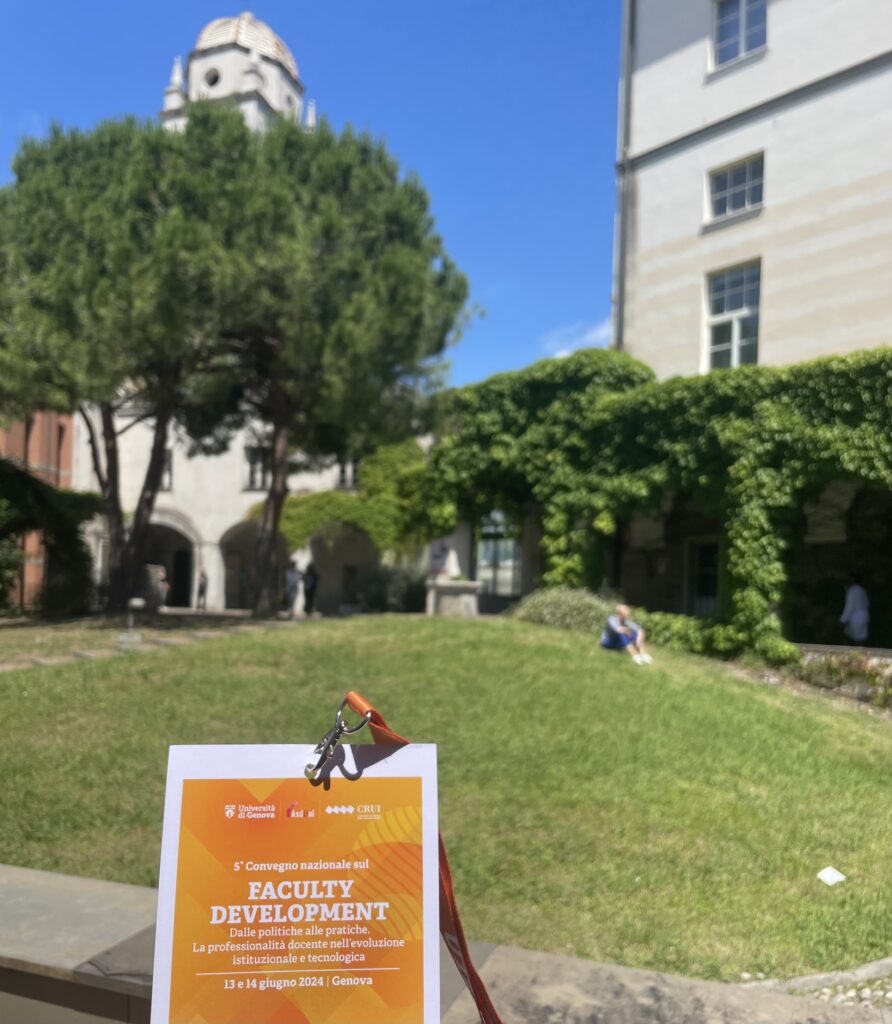During the 5th National Conference on Faculty Development – “From Policies to Practices. Teaching professionality in the institutional and technological evolution” – which took place on 13 and 14 June at the University of Genoa, Italy, the LUMSA University team presented EIS-Lab: a Faculty Development project which is part of the PILOT phase of the European project e-SL4EU (2021-2024).
The lecture – “EIS-Lab: innovating digital didactics through Service-Learning. A Faculty Development pathway within the e-SL4EU European project” – illustrated how the tools elaborated in the 6 project results of e-SL4EU were disseminated within the partner Universities and how LUMSA University, in particular, succeeded in creating an awareness-raising space addressed to university teachers for the implementation of Service-Learning (SL) within degree courses. For this reason, the fundamental objectives of the EIS-Lab programme were to create a community of practice, to systematise experiential teaching activities and to work on Service-Learning according to LUMSA’s Three-Year Development Plan.
In the first phase of the course 28 lecturers were identified based on the following criteria: the adoption of teaching methodologies similar to the Service-Learning pedagogy (active/experiential didactics). 15 of the academics who were contacted gave their full availability to be involved in the training initiative. The main disciplinary areas they relate to are: general sociology, didactics and special pedagogy, philosophy of law, economic policies, sociology of economic processes, labour, environment and territory, social psychology, community psychology, general didactics and work psychology.
The course organised by EIS-Lab was articulated in 6 steps within a time period extending from March to May 2024. At the beginning, the proposal and the requested contribution were presented to the teachers, inviting them to take part in the pilot phase of the e-SL4EU project:
- designing a service-learning activity in their course;
- involving at least 5/10 students (voluntarily) to participate in the project;
- exploring with the EIS-Lab team the design, implementation and evaluation of the Service-Learning activity;
- testing the tools realised by the e-SL4EU project consortium during the semester and providing their own feedback.
The invitation to attend the training meetings was also extended to teachers interested in Service-Learning who were not able to experience it in the second semester of the 2023/24 academic year.
Afterwards, were collected the expectations of the participants, which could be summarised as a general desire to ‘network’, creating spaces for listening and dialogue about common experiences, visions and values. The introduction to the pedagogical proposal of Service-Learning- by presenting its characteristics, the different types and providing design examples – made it possible to focus on what Service-Learning activities could be designed into the different courses of the teachers involved. In a sharing frame, were disseminated the guide tools for Service-Learning developed by the e-SL4EU Consortium, such as:
- E-Service-learning guideline for community partners that have expressed their intention to start or maintain a collaboration with EIS (Save the Children, Sant’Egidio, Scholas Occurrentes, Croce Rossa, Municipalities etc.);
- a manual on Facilitation Methodology for e-Service Learning in Higher Education;
- a manual on Evaluation methodology and materials for the assessment and communication of the e-SL community impact.
Towards the final phase of the EIS-Lab course was carried out a monitoring on the design of the SL in the different courses, which allowed to highlight activities that were realised during the academic year concerned and/or will take shape in the following one: these are combined with different types of SL such as Direct SL, Research-Based and Advocacy SL. The course ended with a questionnaire on Service-Learning addressed to the professors regarding the tools provided, exploring their views on the significant advantages and the greatest challenges in the implementation of SL.
The EIS-Lab proposal remains oriented towards future steps to maintain the awareness and the dissemination of the SL model by following up the community of practice, to relaunch the Service-Learning training (new in-depth meetings), to involve more degree courses and more community partners (participative co-design), to monitor and map the SL application in the different courses and to extend the experiences beyond the LUMSA University trying to reach a wider audience with the MOOC developed by e-SL4EU in order to build more inclusive and digital higher education systems.
Valentina Furino, LUMSA University

Policies to Practices. Teaching professionality in the institutional and technological evolution”


Solidarietà” (EIS), LUMSA University, presented the EIS-Lab proposal through a speech
titoleted “EIS-Lab: innovating digital didactics through Service-Learning A Faculty
Development pathway within the e-SL4EU European project”
